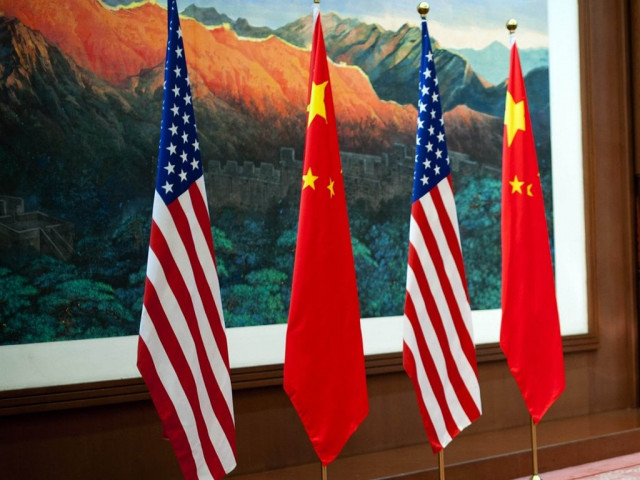US, China all smiles on trade but doubts persist
Beijing offers to increase imports of US agricultural, energy and manufactured goods

Beijing offers to increase imports of US agricultural, energy and manufactured goods. PHOTO: ONLINE
After two days of high-level negotiations in Washington, President Donald Trump hailed the "tremendous progress," and the Chinese delegation said the talks had been "candid, specific and fruitful."
Beijing also offered to increase its imports of American agricultural, energy and manufactured goods as well as US services as a gesture that it is willing to open its markets -- one of the key US demands.
Philips shifting millions of euros worth of production due to trade war
More important still, Trump announced he and his Chinese counterpart Xi Jinping would meet "in the near future" to bury some of the more difficult bones of contention in person.
The prospects of a Trump-Xi meeting "substantially raise the odds of a deal that gives the US at least a partial victory," said Eswar Prasad, Professor of Trade Policy at Cornell and China specialist.
Given the tight deadline imposed by the 90-day truce - leaving them just a month to reach a deal - analysts say it is not realistic to expect more than a partial agreement with modest objectives.
But the US side has more far-reaching objectives and demands China end its unfair trade practices, including the alleged "theft" of American technological know-how, including forced transfer of intellectual property, hacking and massive state intervention in markets.
While Trump insisted this week he would only sign a "real deal" that addressed these grievances, Washington could bump up against the soaring ambitions Beijing laid out in its "Made in China 2025" strategic plan.
Dollar trapped in ranges on trade war concerns, Fed
Launched a little over three years ago, the plan aims to make the Asian giant a global leader in crucial emerging technologies like artificial intelligence and alternative energy vehicles.
For China, meeting Washington's demands would amount to altering its economic strategy and lessening the role of the state in the economy, something western analysts say is unthinkable.
Beijing "has identified a whole range of industries that are strategically important and they want to use all the resources of the state to ensure that Chinese companies excel and become world leaders," the American Chamber of Commerce in China said in a statement.



















COMMENTS
Comments are moderated and generally will be posted if they are on-topic and not abusive.
For more information, please see our Comments FAQ